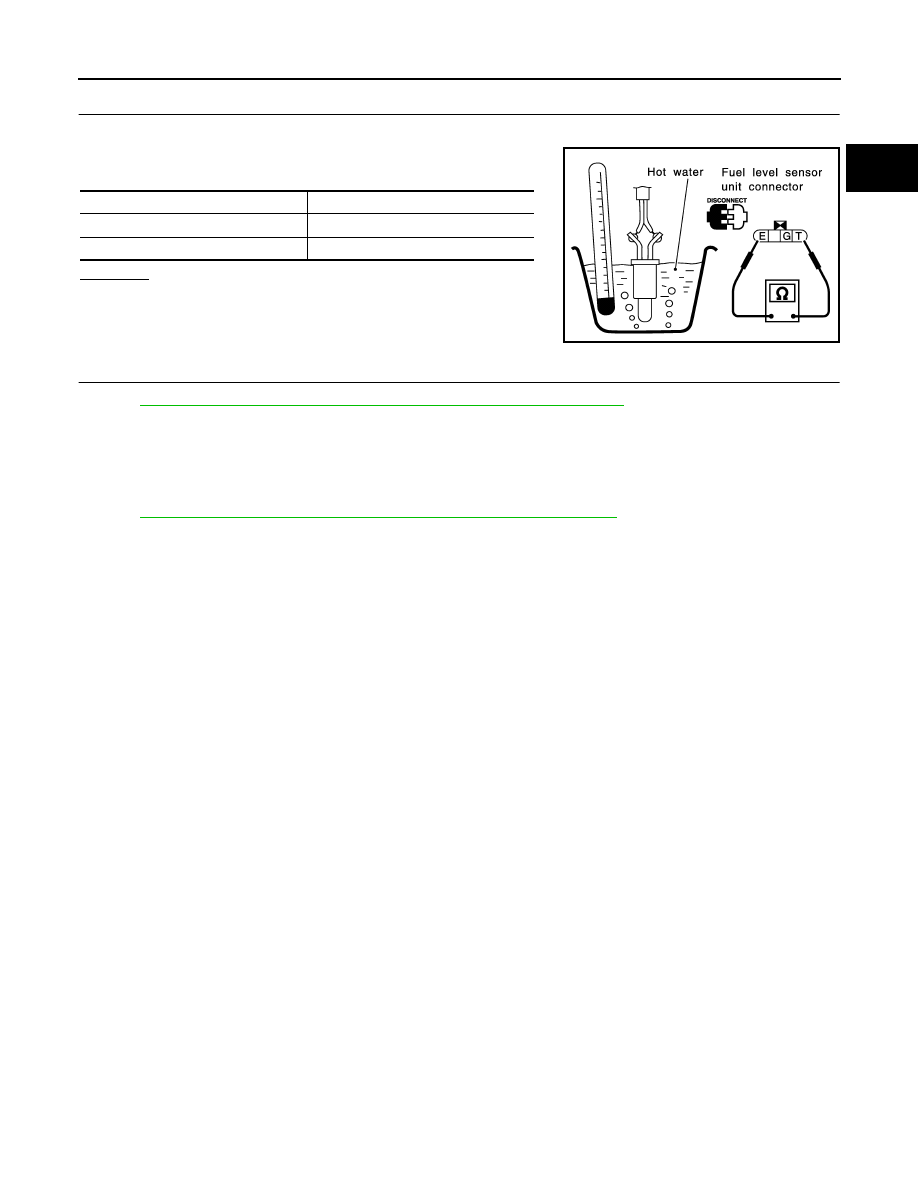Nissan Frontier D22. Manual - part 587

DTC P0182, P0183 FTT SENSOR
EC-1451
[VG33ER]
C
D
E
F
G
H
I
J
K
L
M
A
EC
5.
CHECK FUEL TANK TEMPERATURE SENSOR
1.
Remove fuel level sensor unit.
2.
Check resistance fuel level sensor unit terminals T and E by
heating with hot water or heat gun as shown in the figure.
OK or NG
OK
>> GO TO 6.
NG
>> Replace fuel tank temperature sensor.
6.
CHECK INTERMITTENT INCIDENT
Refer to
EC-1297, "TROUBLE DIAGNOSIS FOR INTERMITTENT INCIDENT"
>> INSPECTION END.
Removal and Installation
UBS00DWI
FUEL TANK TEMPERATURE SENSOR
Refer to
FL-6, "FUEL LEVEL SENSOR UNIT AND FUEL PUMP ASSEMBLY"
.
Temperature
°C (°F)
Resistance k
Ω
20 (68)
2.3 - 2.7
50 (122)
0.79 - 0.90
PBIB1425E